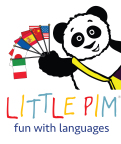Scott posts a quick update on the status of the Nell designs for narrative interfaces and its application to OLPC’s recent literacy project in Ethiopia:
The Literacy Project is a collaboration between four different groups: the One Laptop per Child Foundation (“Nellâ€), the MIT Media Lab (“Tinkrbookâ€), the School of Education, Communication and Language Sciences at Newcastle University, and the Center for Reading and Language Research at Tufts University (“Omoâ€). The goal is to reach children even further from educational infrastructure than OLPC has ventured to date. In particular, the Ethiopia pilots are complete child-led bootstraps, attempting to teach kids to read English (an official language of Ethiopia) who neither speak English nor read in any language yet. There are no teachers in the village, and no literate adults either.
Adapting Nell to this environment has some challenges: how do we guide students through pedagogic material with stories if they don’t yet understand the language of the stories we want to tell? But the essential challenge is the same: we have hundreds of apps and videos on the tablets and need to provide scaffolding and guidance to the bits most appropriate for each child at any given time, just as Nell seeks to guide children through the many activities included in Sugar. In the literacy project there is also a need for automated assessment tools: how can we tell that the project is working? How can we determine what parts of our content are effective in their role?

 Little Pim the Panda has a series of videos that are part of an ‘Entertainment Immersion Method’ which uses animation to help children learn new vocabulary, and improve analytical, memory and concentration skills in 11 languages. Children can learn over 360 words and phrases using all of the Little Pim lessons. Now OLPC is partnering with them to bring language learning to millions of students with XOs around the world.
Little Pim the Panda has a series of videos that are part of an ‘Entertainment Immersion Method’ which uses animation to help children learn new vocabulary, and improve analytical, memory and concentration skills in 11 languages. Children can learn over 360 words and phrases using all of the Little Pim lessons. Now OLPC is partnering with them to bring language learning to millions of students with XOs around the world.